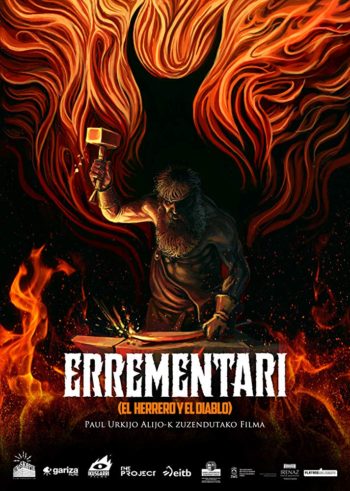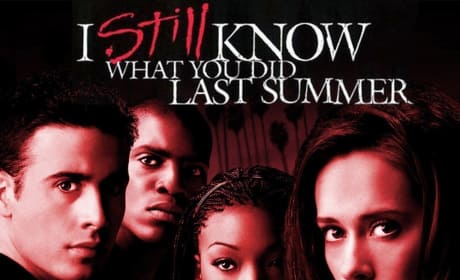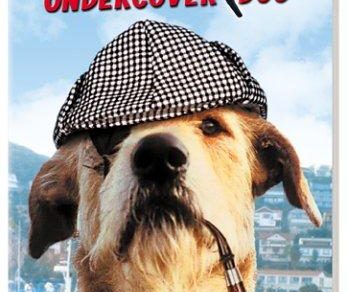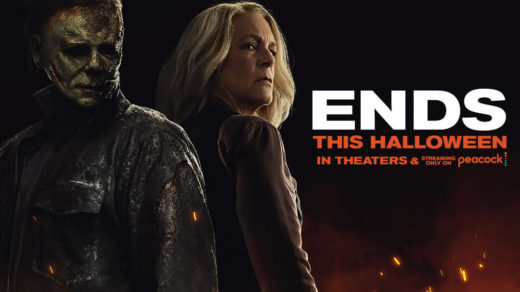
Errementari: The Devil and the Blacksmith (2017)
Directed by Paul Urkijo
Viewed on Netflix
Summary: Blending good performances, a unique setting and plot, and some fantastic visual effects, Errementari is memorable, fun, and creepy in equal measures.
This is a fascinating movie, not just because of the plot or visuals but because of where it came from. I’ve covered a few foreign horror movies on here but I’ve never talked about a movie made in the Basque region of Europe, a region that I’m not terribly familiar with. What attracted me to this film, aside from Netflix being very proud of it and pushing it on me whenever it could, is that it is a fantasy horror movie, a genre combination that I find really interesting. I already like a lot of horror films with supernatural elements, so why not just cut out the middleman and take a look at a horror film that wears its fantastical elements on its sleeve?
Errementari takes place in a small, poor town out in Basque country. Here, a young girl, Usue, is having a pretty rough time, being an orphan who gets picked on by all the other kids. One day the bullying goes a bit far, resulting in Usue’s prized possession being flung over a wall and onto the land of the local hermit, a blacksmith who everyone in town is afraid of, and Usue goes in to retrieve her treasure. While investigating the grounds, Usue unwittingly releases a demon, stumbling upon a battle between evil and other kinds of evil that had been taking place in town unbeknownst to the locals..
So this movie has a really fairy tale feel to it and that is appropriate because it is based on a European folk tale. I’m having trouble finding the words to explain exactly what that means but the whole thing feels a bit more like a morality play where a lot of lessons are learned, immoral characters become moral after dealing with the consequences of their actions, a lot of critiques are made of society, things like that. What’s really interesting about this is that this is a very Catholic movie, there are literal Demons in it, Heaven and Hell are real, and the battle for the soul is treated very seriously. I don’t often see movies that tackle this kind of subject matter and I found it refreshing to see this from the perspective of a movie that’s not explicitly a conversion piece.
Speaking of that I need to talk about the Demons, I absolutely loved how the demons were shown in this film. It’s a really neat interpretation of the purpose of demons, buoyed by the absolutely beautiful effects work on the demons’ bodies. Seriously, I am in love with the look of these demons, they are great twists on the classic demon look and it’s clearly done with practical effects so they look shockingly realistic and actually kind of creepy. And it’s not just one look, they all have unique designs that are all imaginative and spooky and fun, and in addition to their looks they’re all fully fleshed out characters with their own wants, goals, and methods, and seeing all the human and demon characters interact is really something.
Oh, the humans are okay too, I guess. Seriously though the human cast is all good, realistically shitty to each other and whatnot, considering the world they live in. I quite liked the main character Usue, she’s a bit angry with the world, which is sensible, being an orphan in a poor town in the mid 1800s being taken care of by a priest and a woman who tends to church matters, I think, who regularly tell her that her mom is in hell because she killed herself. Slight amount of justification for Usue to do mildly mischievous things like skip church and steal the communion wine. One really fun thing about her is that Usue does not take shit from anyone, she never shrinks from conflict, verbal or physical and that gives a unique feeling to this character, especially in contrast to how women are typically portrayed in fairy tale stories. Everyone else is pretty much okay, the townspeople are kind of interesting in that they are realistically miserable and still reeling from a recent war. There just seems to be a general air of hopelessness that does a lot to explain the desperation that many of these people are going through.
Speaking of desperation, there is a harder satirical edge to this movie than I originally thought there would be. There are several interesting discussions and interactions that demons have with humans and each other that serve to point out a lot of hypocrisy or at least ill thought out notions about humans and demons. The most interesting being the one between Usue and a demon about the nature of demons and Hell. The demon bemoans that humans blame them for all their suffering, noting that humans are given specific instructions on what to do and not to do in order to avoid the lake of fire, but still blame demons for when they fall. How much stock you want to put into a demon’s explanation of this situation is another story entirely, but its an interesting perspective and there are many moments like this here that are mildly thought provoking.
One aspect of the film that suffers a bit from its fairy tale style storytelling is that of the character of the blacksmith, particularly in regards to an an event that is kind of a major spoiler for the film but I’ll try to avoid explicit details. We eventually learn of the blacksmith’s backstory and it is pretty horrific, with the blacksmith committing several horrible crimes against many people which result in even more tragedy. We see the blacksmith after he is somewhat changed but don’t see what caused the change or why. I mildly blame the fairy tale style here because it seems that this character perhaps wasn’t meant to be evaluated as a person in real life but rather as part of a larger morality play, and I think it would feel a bit less strange in those contexts. Here though, it feels a bit odd to be presented with a character who has done heinous things but just be told, don’t worry he’s different now.
I can’t be too mad about the blacksmith though, because his involvement here leads to one of the greatest endings in cinematic history. There is no way I’m going to spoil anything about the ending but rest assured that everything is worth it to get to this ending, it is a glorious and absurd ending that is both satisfying and 100% fairy tale. I wish I could talk about just how cool and awesome the climax is but it exemplifies everything this film does well, being an imaginative sequence with a mix of serious tension and humor that feels totally tonally appropriate, damn is it good!
Before I spill the beans on the ending, I’ll just wrap up my review here. Errementari is a solid fantasy horror film that shifts tones occasionally but always feels in control of what direction it’s going. The characters are understandable but not entirely wholesome and feel realistic. Imagination shines through every aspect of this movie, from character and monster design to set design and even how differently certain characters speak from one another. What really tied it together was how high of a note the whole thing ended on, it really left you feeling like you saw something truly unique, and while I don’t think there will be a sequel to this, it would be great to see a follow up. Also I recommend watching this with the English subtitles and the original Basque dialogue because it’s such an interesting sounding language and helps to transport you to a different world, to better get you into the fairy tale mindset. Errementari gets a solid recommendation from me, especially if you’re into fairy tale style stories and movies that have demons.



Recent Comments